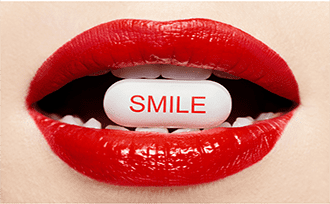Home > Emotional wellbeing > Mental health > Antidepressants part 1: the basics


I’m sure you’ve heard a lot about antidepressants. Maybe some of you have family and friends who have tried them, or maybe you’re considering them for yourself. Here’s the thing: they really can work. But before you take anything, book an appointment with a GP, or qualified mental health practitioner to see if it is a right choice for you.* In the coming weeks, we will be writing out a series on antidepressants and all you need to know. For today though, we will be focusing on SSRIs.
Now, just so you know, I have been on antidepressants for the better part of five years. They have helped me turn my life around, but I also had to try a few before I found one that really did the trick. Before I get into my own personal experience, let me try and break down some facts and misconceptions around antidepressants. Just like heart or pain relief medications, they are a drug, and it’s important to know what takes place in our bodies when we take them.
There are six main classes of antidepressants. In this article, I’m going to focus on SSRIs. SSRI stands for Selective Serotonin Reuptake Inhibitor. An SSRI increases levels of serotonin in the brain.
Serotonin works as both a neurotransmitter and as a hormone. Hear me out: when serotonin is released in the brain, it functions as a neurotransmitter. It regulates fear, anxiety, mood, mental focus and clarity and can also affect the sleep cycle.
When serotonin is released in the gut, it functions as a hormone. Here it regulates food cravings, fulness/ hunger (satiety), digestion, and nutrient absorption. The difference is where the serotonin originates: either in the glands within the endocrine system, or the neurons within the nervous system.
There are thousands and thousands of neurons in our brains, constantly working, making connections and keeping us up and running. We can think of neurotransmitters as a pigeon carrier; they carry a message to a part of the brain or body. So, when there isn’t a clear enough message on that piece of paper, things get muddled and confused. Translation: there isn’t enough serotonin in our brains to create those happy feelings. Therefore, those feelings of fear, anxiety, irritability or low mood and brain fog can appear.
While there are many SSRIs available, the ones that are most prescribed are sertraline (Zoloft), fluoxetine (Prozac), citalopram (Celexa), and escitalopram (Lexapro in the US or Cipralex in the UK and Europe).
The therapeutic dose for each of these medications differs and ranges, depending on the drug, past history and current distress of the individual taking them. It can also depend on what the distress is. SSRIs can be used to treat both depressive and anxiety disorders.
Something to keep in mind with antidepressants is that they are not a quick fix; they are a long lasting and long-term treatment. It can take anywhere from two to six weeks to see a true difference. I cannot stress enough how important it is to not miss a dose. However, if you find that things really aren’t getting any better, or you are experiencing side effects, you should talk with your doctor. Working as a team with your healthcare provider (whether it be GP, psychiatrist, psychologist, or all of the above), is vital.
Just like anything else, side effects aren’t one size fits all. (We will explore side effects in more detail later on in the antidepressant series.)
The most common side effects from SSRIs can include
Here is a helpful chart that compares side effects of different classes of antidepressants. If you are interested in finding out more, you can also use this page for a more detailed description.
If you have decided that you want to give antidepressants a try, there are some changes you will have to make in your lifestyle. Primarily alcohol intake, exercise and sleep. Any doctor will tell you that these three things should be monitored anyway, but this advice comes mostly from my personal experience.
Getting enough exercise in can be especially difficult when you feel like getting out of bed is a huge task. Trust me, I’ve been there. Once my medication started taking effect, I found it much easier to complete more and more tasks, and one of those was exercise. And by exercise, I don’t mean slamming it out at the gym for an hour every day — although if that’s your thing, by all means. I mean just moving your body. You can start as small as you’d like; some stretches in the morning, a Youtube Pilates workout, a walk with the dog, or even a high powered run. The endorphins you will release in conjunction with the medication will make you feel like your best self.
What comes hand in hand with exercise? Water intake! If you’re anything like me, you forget the water glass exists and it’s suddenly 11 pm and you’ve had 4 sips all day. If you’re exercising, you’ll get thirsty, and likely drink more water.
Is it starting to become clearer how everything is connected? Presumably, by taking antidepressants, the levels of distress will lower and will open multiple doorways for healing. That includes being able to truly take in what is discussed in therapy and feeling able to do things that once felt too overwhelming. Hopefully, you’ll be calmer, more motivated to work on your healing journey, move your body, care for yourself, drink water, and you’ll be getting more restful sleep!
On the other hand, another lifestyle change you may have to make is monitoring the amount of alcohol and/or other substances you consume. Combining alcohol and SSRIs can range from being ok, to risky business. Having one drink while on medication is usually considered to be fine, but any more than that and you run the risk of getting drowsy. Before any consideration of drinking, consult your doctor to see if it would be safe for you. As mentioned, everyone’s personal history is different, everyone’s body is unique, and that can sometimes call for unique treatment plans.
It’s also important to keep in mind that some more natural remedies may negatively interact with antidepressants (such as St. John’s Wort). More on that in coming articles.
The simple answer is yes, they do. There are a multitude of studies that have tested the efficacy of antidepressants in treating depression and anxiety, and there are overwhelming amounts of positive results.
When I first tried antidepressants, I was 16 and took them to help with a combined depression and anxiety diagnosis. I worked hard in therapy and the drug worked hard in my brain, I got better and tapered off them. Fast forward to now, I’m 25, and anxiety thinks it’s my best friend. I made a personal decision of going back on the medication train. In the past 5 years or so, I have tried citalopram, sertraline, and even combinations of drugs (also known as poly pharmacy). It was rough. I worked with my doctor and now I’m on a medication that is in a dose low enough to not give me brain fog, but high enough to actually be effective. Hence, the therapeutic dose I mentioned earlier.
The bottom line is that choosing to take antidepressants is a very personal and private decision and should be treated as such. It is vital to speak to a doctor before you take anything, and make sure that you fully understand what it is you are taking. I would also advise finding someone you are comfortable treating you.
*The advice given in this article is from personal knowledge and experience and you are free to listen to it or disregard it completely. Speak with a doctor and someone you feel comfortable with to see what works for you personally.
The information, including but not limited to, text, graphics, images and other material contained on this website are for informational purposes only. No material on this site is intended to be a substitute for professional medical advice, diagnosis or treatment. Always seek the advice of your physician or other qualified health care provider with any questions you may have regarding a medical condition or treatment and before undertaking a new health care regimen, and never disregard professional medical advice or delay in seeking it because of something you have read on this website.

-


Dr Singh is the Medical Director of the Indiana Sleep Center. His research and clinical practice focuses on the myriad of sleep.

What does spotting before your period look like? Spotting is a few drops of blood on your underwear that are not enough to soak a pad. It’s typically brown, light pink, or red and may only be noticeable on a

Postpartum hormonal changes: What are they? Postpartum hormonal changes occur when your body experiences shifting hormone levels after birth. After your baby is born, the doctor removes the afterbirth or placenta, which sends signals to your body that you’re no

What is ovulation fatigue? As women, we can get numerous symptoms throughout our menstrual cycles. One question we’re asked is, “Why do you get tired during ovulation?” For some, the answer could be ovulation fatigue. Ovulation fatigue is when you
Hormona© 2025, All Rights Reserved
| Cookie | Duration | Description |
|---|---|---|
| cookielawinfo-checkbox-analytics | 11 months | This cookie is set by GDPR Cookie Consent plugin. The cookie is used to store the user consent for the cookies in the category "Analytics". |
| cookielawinfo-checkbox-functional | 11 months | The cookie is set by GDPR cookie consent to record the user consent for the cookies in the category "Functional". |
| cookielawinfo-checkbox-necessary | 11 months | This cookie is set by GDPR Cookie Consent plugin. The cookies is used to store the user consent for the cookies in the category "Necessary". |
| cookielawinfo-checkbox-others | 11 months | This cookie is set by GDPR Cookie Consent plugin. The cookie is used to store the user consent for the cookies in the category "Other. |
| cookielawinfo-checkbox-performance | 11 months | This cookie is set by GDPR Cookie Consent plugin. The cookie is used to store the user consent for the cookies in the category "Performance". |
| viewed_cookie_policy | 11 months | The cookie is set by the GDPR Cookie Consent plugin and is used to store whether or not user has consented to the use of cookies. It does not store any personal data. |
